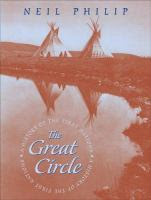I entered "Oyate.org" in the search box and then clicked on a 2007 date. I was then able to go into the site and find the "Books to Avoid" page and then the review of The Great Circle. Here's the link:
The Great Circle: A History of the First Nations
The Great Circle was published in 2006 by Clarion Books.
A few years ago, Oyate decided the "Books to Avoid" section of their website was not helpful. They wrote:
As longtime visitors to our site have noticed, we discontinued our popular “Books to Avoid” section. Our Mission is to educate, and for that reason we have decided not to merely post a list of “books to avoid,” but rather to expose our readers to the criteria we use to differentiate between books, so that you too can learn how to identify books to avoid.
We know it might seem more efficient for the reader to have us “tell you the answer,” but that does not feel like a liberating approach to education. Supporting others to develop the critical thinking skills needed to discern what about a book is appropriate and inappropriate better serves our mission and our supporters.
Those of you who used that page know that the "Books to Avoid" page was not just a list of books. Clicking on each title took you to an in-depth critique of the book. In my view, the reviews provided readers with examples of what the application of critical thinking skills looks like.
Deciding to--or not to--use or buy any book is always left up to the individual making the decision. The reviews in the "Books to Avoid" section enhanced critical thinking skills. Perhaps it was the title of the section that they deemed problematic. If you look at reviews at Goodreads or Amazon, those that get one star are similar to "Books to Avoid," but I can imagine that some read "Books to Avoid" as an attempt to censor.
From time to time I'll provide additional inks to the reviews at the Internet Archive. This one is here because a reader wrote to ask me for help in finding that review.

